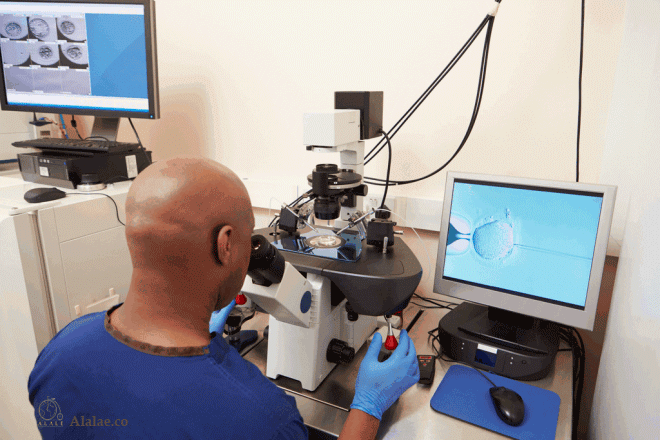
In vitro fertilisation (IVF) is the best treatment for certain kinds of fertility problems. However, it can be demanding and doesn't always result in pregnancy.
If you’re about to start a course of IVF, find out as much as you can about the treatment. Knowing what to expect can make IVF easier to manage.
When a couple conceives naturally, sperm from the man and the egg from the woman meet in the woman’s fallopian tubes. These are the tubes that join the ovaries to the uterus (womb). One sperm penetrates the egg and fertilises it.
In IVF, this process of fertilisation happens outside the woman’s body. A woman’s eggs are surgically removed and fertilised in a laboratory using sperm that has been given as a sperm sample.
Next, the fertilised egg, called an embryo, is surgically implanted into the woman's womb.
Typically, one cycle of IVF takes between four and seven weeks.
You can learn more about this process in How IVF is performed.
IVF does not always result in pregnancy.
In the UK, around 20-25% of IVF treatment cycles result in a birth. In general, younger women have a higher chance of success. Success rates decrease dramatically in women over 40. For more on this, see information from the HFEA on fertility treatment success rates.
IVF can be a physically and emotionally demanding process. Some men and women have mental health or emotional problems such as anxiety or depression during or after IVF.
If you're undergoing IVF, ask about counselling to help with the emotional impact of the process and its results. You can learn more inIs IVF right for you?
IVF risks
There are health risks involved in IVF treatment. These include:
There is an increased chance of multiple pregnancy with IVF. Multiple pregnancy has health risks for both the mother and children as twins or triplets are more likely to be born prematurely and to be underweight at birth. Learn more about twins and multiples.
Drugs used to stimulate the ovaries during IVF can lead to ovarian hyperstimulation syndrome (OHSS).
In OHSS, the ovaries enlarge and become painful, causing abdominal discomfort. More severe cases can lead to shortness of breath, fluid retention in the abdominal cavity and formation of blood clots. In these cases, you may need a stay in hospital.
When eggs are removed from the woman, a fine needle is passed through the vagina and into the ovaries. There is a risk of introducing infection into the body, though antibiotics and surgical hygiene ensure that this rarely occurs.
If you’re suffering from infertility; If you’ve given up your hope for finding proper treatments, then you should Know that, having the best medical experts and facilities, Iran is the best place to see; your solution.
Submit Comment